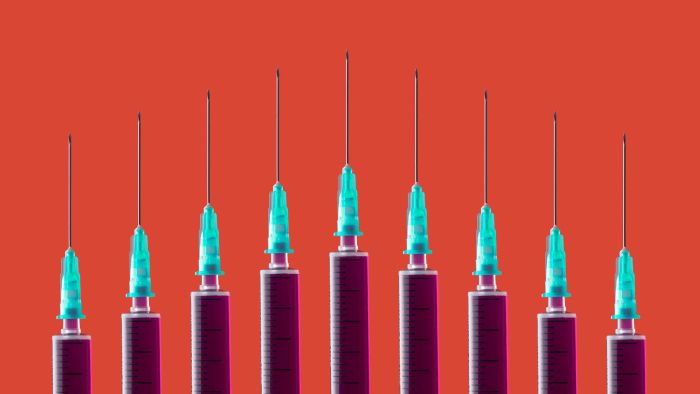There are more than 100 coronavirus vaccines in the pipeline and almost a dozen that have made it to human trials so far.
But which one — if any — will be the panacea to the COVID-19 pandemic is still anyone’s guess.
Researchers working to develop a SARS-CoV-2 vaccine face a unique and significant set of challenges — not to mention the fact they’re trying to do it in record time.
While it will be some months before we know whether any of the proposed vaccines are effective, initial safety trials and encouraging animal studies show promising early signs.
Let’s take a closer look at some of the candidates leading the race (remembering those that make it to clinical trials first will not necessarily be the most effective).
The 10 vaccines in human trials
A quick recap, according to the World Health Organization, as of May 24.
- Non-replicating viral vector vaccine from CanSino (China)
- RNA vaccine from Moderna (USA)
- Inactivated vaccine from Wuhan Institute of Biological Products (China)
- Inactivated vaccine from Beijing Institute of Biological Products (China)
- Inactivated vaccine from Sinovac (China)
- Non-replicating viral vector vaccine from Oxford University and AstraZeneca (UK)
- Protein subunit vaccine from Novavax (US)
- RNA vaccine from BioNTech and Pfizer (Germany/USA)
- DNA vaccine from Inovio (US)
While vaccine developers typically follow a linear sequence (pre-clinical animal studies to Phase 1/2/3/4 human trials), the urgency of COVID-19 means many are speeding up their timelines.
In some cases, Phase 1 and 2 trials are being squashed together (testing safety and effectiveness of the vaccine at the same time), or Phase 1 human safety trials are running before animal efficacy data is in.
Genetic vaccines create buzz
This week, all eyes were on an experimental vaccine produced by American biotech company Moderna — the first coronavirus vaccine to be tested in humans back i

